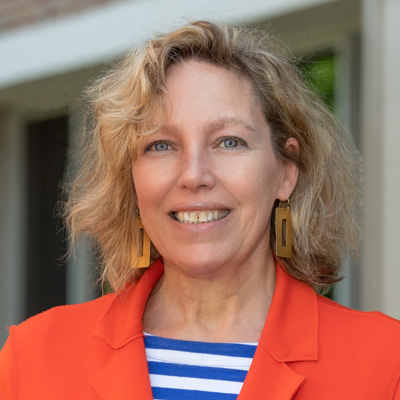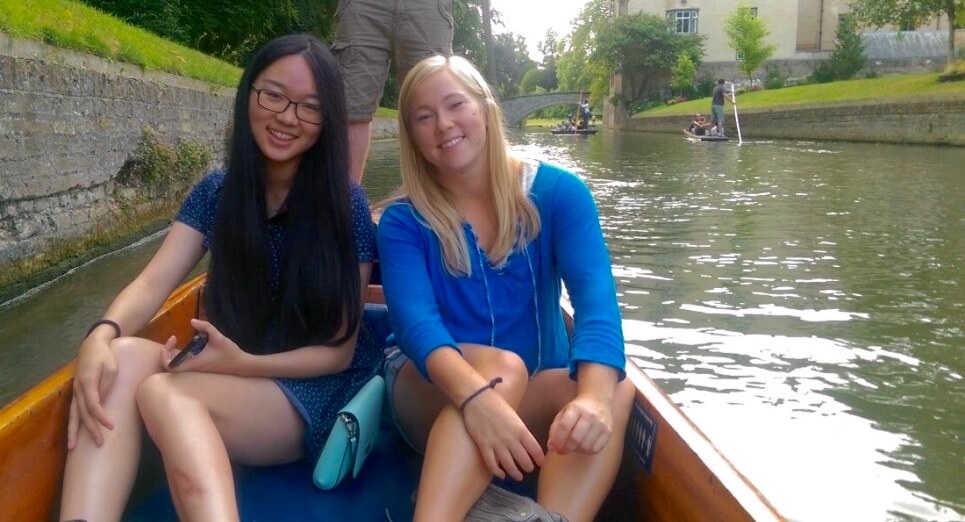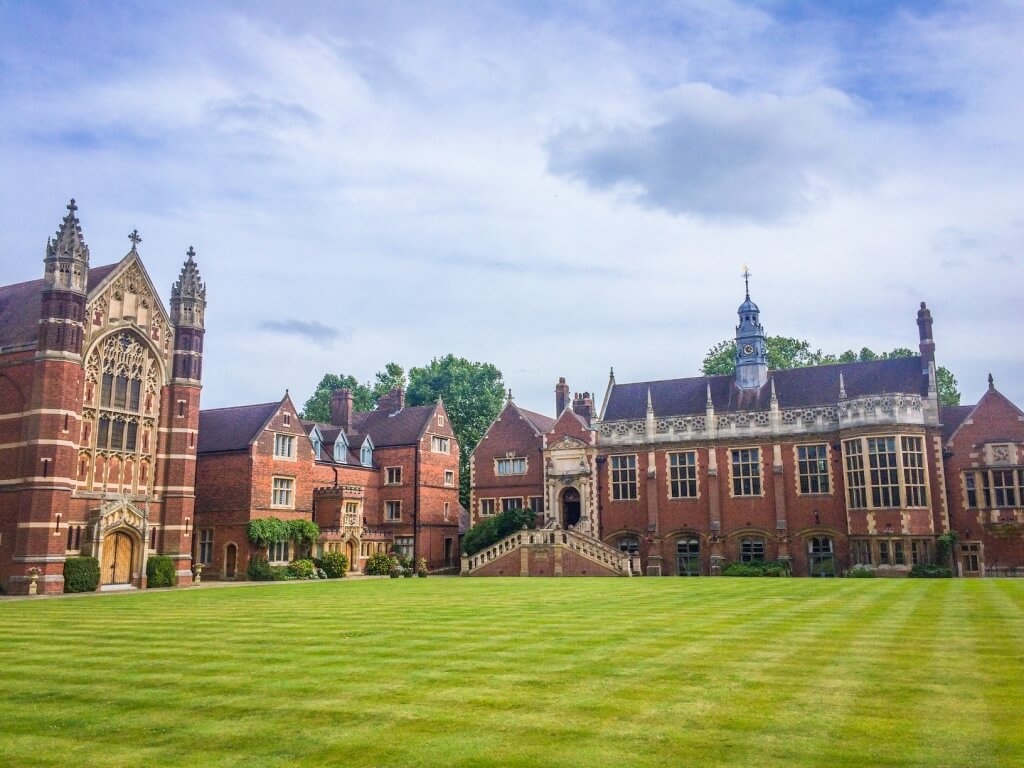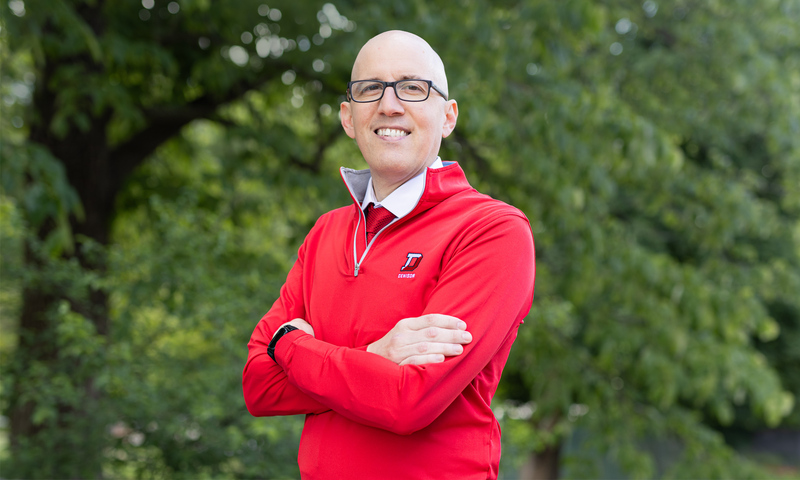Just after commencement, Sarah Torrence '16 and Sky Liu '16 headed to the University of Cambridge as visiting scholars to the Institute of Criminology. The two used their data analytics and computer science skills to conduct research on evidence based policing methods.
It’s not every day you wake up, eat breakfast in a hall that resembles the dining hall of Hogwarts and have a lovely walk in the garden on your way to work all before 9 a.m. Lucky enough for me, that was my daily routine while I was working at the University of Cambridge this summer.
As a visiting scholar to the Institute of Criminology in the summer of 2016, I was able to use skills I learned in the math and computer science department at Denison in an interdisciplinary way, working with police leaders and crime analysts from around the world to conduct research in evidence-based policing.
Evidence-based policing is a data driven approach to policing using strategies such as statistical analysis and randomized control trials in formulating decisions and policy making.
I worked on everything from gathering the right data and wrangling it into the correct form to running statistical tests and interpreting and displaying results in the appropriate fashion.
Lawrence Sherman, the Director of the Institute also known as the “father” of evidence-based policing has lead the field in crime prevention examining a number of issues such as domestic violence and saturation patrol.
In my data analytics class last spring I worked with Dr. Sherman, a Denison alumnus, and a previous student of his, Jeanette Kerr, Assistant Commissioner Northern Territory Police Force, to analyze the frequency and intermittency within domestic violence cases in the Northern Territory of Australia.
While working at Cambridge I assisted masters students in the institute’s Police Executive Programme. These students were mostly senior police leaders looking to write a thesis based on research findings within their own police forces and districts.
Through my experiences in my data analytics and statistics classes I took while at Denison, I was able to provide these students with expertise on cleaning big data sets and analyzing these data sets to find interesting results. I worked with them on everything from gathering the right data and wrangling it into the correct form to running statistical tests and interpreting and displaying results in the appropriate fashion.
I was really surprised to learn how many ways data can be used just to change policing and reduce crime. This experience taught me a lot about how data can be used to transform the world in any field of work. When deciding to be a math major the spring of my freshman year at Denison I had no idea I would end up in the world of criminology and I cannot wait to see where it takes me next.



